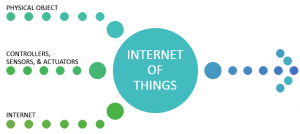Microsoft Announces General Availability Of Azure OpenAI Services, ChatGPT Coming Soon
Microsoft has announced it will add OpenAI’s artificial intelligence (AI) bot ChatGPT to its cloud-based Azure service, building on an existing relationship between the two companies.
Azure OpenAI has only been available to a limited set of customers since it was unveiled in 2021.
The service gives Microsoft’s cloud customers access to OpenAI tools including the GPT-3.5 language system that ChatGPT is based on, as well as the Dall-E model for generating images from text prompts. It enables Azure customers to use the OpenAI products in their applications that run in the cloud.
Eric Boyd, Microsoft corporate vice president of the AI Platform, wrote in a post that the global availability of Azure OpenAI Service means that businesses can apply for access to OpenAI’s GPT-3.5, Codex, and DALL•E 2 AI systems to create applications.
“Azure is currently the only global public cloud that offers AI supercomputers with massive scale-up and scale-out capabilities,” he wrote.
Don’t count out Google. Demis Hassabis, CEO of DeepMind, an Alphabet AI subsidiary, told Time that the company is preparing to released Sparrow, a ChatGPT competitor sometime in 2023. It will be released in private beta.
Microsoft debuted Azure OpenAI Service in November 2021 to enable companies to tap into the power of large-scale generative AI models. On Monday, the company released a timeline of what Boyd calls “AI breakthroughs.”
It’s the technology behind ChatGPT that makes it so attractive. Microsoft made a $1 billion investment in 2019 in OpenAI, but reportedly is looking to invest more, reportedly continues to conduct advanced talks for new funding. Microsoft declined to comment.
How did OpenAI get its start? OpenAI CEO Sam Altman, along with Elon Musk, and others founded OpenAI in 2015. Musk resigned from the board in February 2018, but remained a donor.
ChatGPT, OpenAI’s platform has become an internet phenomenon since launching at the end of November. Agencies have tested the technology. It gained about 1 million users in less than a week. Some said it would supplant professional writers, and others alleged it would threaten Google’s search business.
(17)
Report Post




